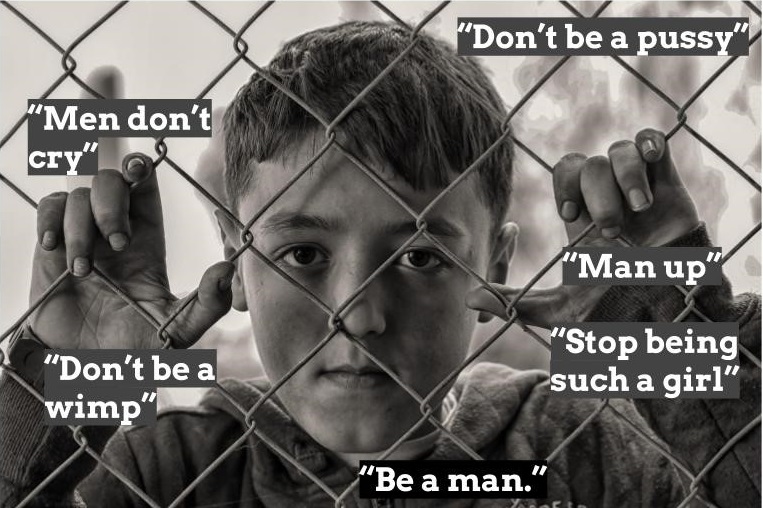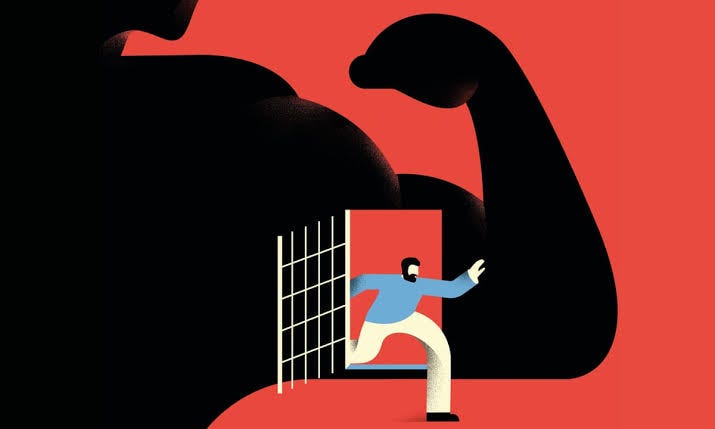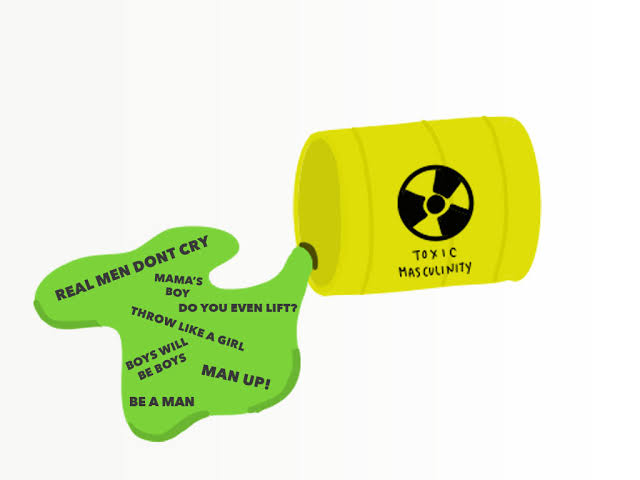There are variant definitions of what it means to be a man, being differentiated from boys according to the various traditional segmentations; depending on the history of a given society. Among most societies, becoming a man is by way of a ritual of passage, it can be riding a bull (The Hamar in Ethiopia), undergoing circumcision (among the Bagisu in Uganda), whipping matches among the Fulani, etc. This is how it was being done back then.
Carry forward to the year 2020, and those to come, things and lifestyles have somewhat shifted as we move towards modernity, and civilization. Many of these old practices have been greatly condemned and written off due to the ever growing ‘human rights activism’ and all, though some still practice them undercover. Allow me draw to you the reason as to why I chose to go by the title; ‘what about the boy child?’. You see much as I have said there has been civilization, and modernity being smeared to society’s norms, some have stayed the way they are. I’ll cite examples from a region I have been in for a while now at least; – the central.
You see, right from childhood, the girl child is raised to be able to nurture and take care of a home. They are taught chores like how to dress food, peeling, administering local herbs, and the likes. In line with this, when they grow up, they are encouraged to be in close relations with their aunties, as it is these ‘experienced and much’ knowledgeable ladies that are to guide them on how to make good wives, future mothers and ‘please a man’. Meanwhile the boys are let free, and be expected to know how to run a home by default. Also, the ‘sexperts’ (kojjas/ ssengas) as we call them locally tend to offer lessons to couples that are nearly getting married, or are even already in it. The only issue I had and still have with them is how they glorify intercourse, and only shade light on that alone. In my opinion, it takes more than sexual relations between a couple to make a marriage work. But again, what do I know?
One could wonder what inspired this article. Well, while watching Netflix’s ‘Too hot to Handle’, there was an episode towards the end of season one, in which the house mates were put on the spot to revisit their pasts, and openly talk about times when they felt they were not good enough, the meanest words someone has ever been told, why they feared commitment and showing their emotions, childhood traumas, and being bullied by others. It was an emotional episode, and also revealed a lot at the same time. You see, someone’s past has a lot to do with their perception on life, and attitudes. Society focuses more on preparing the perfect wives for the men, but the question would be, how much has the surrounding oriented the men to be able to become inspiring father figures, head of families, exemplary to the young ones, and dependable partners to their wives. And it is not about the finances even. It is more about emotional cleansing and a lot more with offering emotional support, and helping them become freer to open up, minus them feeling unease.
The present-day society we have been brought up in society, ‘Toxic Masculinity’ has become prevalent and this has caused most men’s mental health issues to go unrecognized. Toxic masculinity refers to actions that discourage displays of emotion—other than anger—in men while also encouraging behavior that will deem the male “dominant” in a given situation. Even as children, young boys who express feelings are compared to girls in a negative context. Common responses to young males who become emotional include:
Boys don’t cry, Man up, don’t be such a baby, don’t cry like a girl, be a man—get over it, you are man, big boys don’t cry, real men don’t cry, real mean don’t do this or that.

You’ve likely heard these phrases directed at you or someone around you. You have probably noticed them in dialogue or in storylines on television shows and movies. And, you may even be guilty of uttering them yourself.
Imagine being a young boy, crying over a painful injury or an emotional heartbreak that feels like the end of the world, and then being told to “man up,” instead of being gently asked what’s making you cry, how you feel about it, and what you think you can do about it. Be it social norms, upbringing and the role models, many a times exposure to such environments have corrupted the male gender into thinking that it is not okay for them to out their mental grievances.
Masculine ideals such as social respect, physical strength, and sexual potency become problematic when they set unattainable standards. Falling short can make boys and men insecure and anxious. Coming from these men’s social and political settings, the particularities of which set them up for inner conflicts over social expectations and male entitlement.
When feelings are dismissed and gender-defining thinking is heard repeatedly, a young person learns to avoid expressing their real feelings and begins to bottle up sadness. Over time, such behavior can lead to a dysfunctional emotional expression and ultimately, depression.
Men raised in a system that promotes traditional masculinity have complicated feelings towards their own emotions. When a young boy grows up after absorbing the negativity portrayed by others, they often raise their own children—especially boys— the same way. Society dictates that boys be raised to believe that confidence, strength, success, and composure are the core elements of being a man, and anything “emotional” is girly or womanly, and should therefore be stifled and ignored. For this reason, symptoms of depression in men often manifest differently than they do in women.
Makes sense why many men often prefer to keep depression to themselves—hidden from their friends and family members.
Often, they attempt to shut them off or avoid them completely. I believe that this is the reason why men are more likely to use external methods to cope with the inward turmoil and pain caused by depression. Men often deal with depression by over-working. Some may self-medicate by turning to substances such as drugs and alcohol as a way to avoid dealing with depression and anxiety.
Other male symptoms include: fatigue, body pain, severe sleep disturbances, and erectile dysfunction, eating disorders, feeling sad or angry inside but showing rage and anger to appear masculine, inability to perform daily chores, increased irritability, lack of concentration and interest at work and in family, self-medication with drugs, suicidal thoughts etc.
Lastly, many men express their internal conflicts by directing anger at those around them, like their partners or children. What do all of these external “coping” methods have in common? None of them actually help men cope with, or even face, what they are actually struggling with.
There’s a simplistic view that may be partially rooted in truth: women get sad, men get mad. Our emotional state often dictates how we behave, with men and women handling emotions is quite different. When upset, women are more likely to express their feelings directly and to seek the support of friends and family, whereas men might hide their emotions or withdraw.
We need to change how we see depression in the boy child; depression is not related to gender. No man or woman chooses to live with depression. Traumatic events lead to depression, and we need to accept this fact instead of dispiriting the problem and the sufferer.
Depression is often a life-long illness. In most cases, long-term help may be needed to stay well, which includes sticking with treatment and developing and facilitating a plan for when symptoms return. Setbacks can happen to anyone even if you’ve been feeling well for a long time. Many men and women who live with depression learn to cope and are able to live fulfilling lives. Take it one step at a time, one day at a time. Your family, friends, and treatment team are resources.
Men are often told they have to ‘get in touch with their feelings,’ but what does this mean and how do you do it?
Here are some strategies for getting to know your feelings better and developing a healthy masculinity:
Be aware of the sensations in your body. Emotion always manifests somewhere in the body. Anger might be experienced as a flush of heat in the face, sadness as a lump on the throat, anxiety as a knot in the stomach. Take a moment to acknowledge the feeling(s) and take a few breaths to help identify these sensations and understand what they mean.
If you are feeling angry, ask yourself what other emotions you might be feeling? Are you really sad underneath, or afraid?
Learn to put words to what you are feeling. Often it helps to write down or brainstorm ideas before a conversation.
Identifying and expressing feelings is a learnt behavior – and like driving a car, it takes practice.
Take the risk of showing your vulnerability with people who you feel safe with. Give yourself permission to be human; it can bring you closer to others and may even bring a sense of relief.
Ask for help when you need it. Everyone needs a hand at one point or the other.
Changing Our View of Men and Depression
Unfortunately, I’ve had several male clients relay painful stories about the insensitive responses they received when they confided in a loved one about their struggles with depression. Sadly, they weren’t met with sympathy or encouragement. Instead, remarks along the lines of, “Why are you depressed about, are you on your period?” are fairly typical.
What You Can Do
Here are some tips you that can help you build trust and encourage the men you love to be more comfortable sharing their emotions:
Avoid trivializing depression in men. Instead of saying, “Are you insane?” or “Why are you acting like an emotionally-challenged person?”. Use empathy and provide support to your male friends and family members who are depressed. Finding the right words can be difficult and saying them can feel awkward but being willing to listen, without judgment, is often the best thing you can do for someone who is depressed. Motivate them to share their feelings and emotions with you, and when they do, provide the moral support that they need instead of belittling them.
Change your expectations and reactions. As a therapist, I have witnessed that men suffering from depression never share their feelings because they would be mocked. The fact is that when someone is suffering from depression, sharing their feelings and emotions is necessary to help them cope with the problem. We need to be better friends, better partners and be the support that men need.
Be part of the solution by sincerely encouraging men to help them express emotions better. To help men you have to help them get rid of their hesitation in sharing their emotions. We must accept the fact that expressing emotion and crying are normal tendencies for all people, regardless of gender. Crying must not be associated with gender roles. Addressing and processing emotions is what makes us human, and crying is a fundamental emotion.
Each person is born with unique assets and challenges that affect how they grow and develop biologically, psychologically, and socially. Adult family members as well as adults in neighborhoods, schools and the broader community, can facilitate that person moving toward growth and development. Help them face risks and challenges by helping them achieve a positive outcome. We often refer to overcoming adversity as promoting resilience.
We can change the model of masculinity by telling children that it’s fine for boys to express and show emotion. Male role models can practice what they preach by expressing affection and emotion: telling their children they love them; being comfortable hugging them; showing that it’s okay to cry at weddings, funerals, when they are injured, etc. and discussing everyday emotions such as, “my day at work was overwhelming and I struggled with some low points.” Teaching boys how to express their emotions adequately is the key to helping them become emotionally expressive. These lessons will have a positive effect on their life in the future.
It has been too long, that we have lived with the traditional model of masculinity and if you ask me, NOW is a great time to change how the society perceives emotional responses in men. Because to make great leaders, role models, it starts with putting in enough effort in creating a free and enabling environment for masculine vulnerability, in order to break these mental barriers, since the men do have a major influence in how homes, offices, economies are run. As these concerned parties prepare the young girls for their future roles, it is very vital that the boy child is not left behind, but rather given equal opportunities of growth, expression and being listened to, and helped.

My fellow guys, it is okay not to be okay. Sometimes, kindly put the heroic mindset and the “haadi guy” attitude in you aside, and the pressure from society to be fully accomplished, and seek help in case you feel overwhelmed and need it. Remember, these thoughts and feelings are what make you who you are; – a human.













